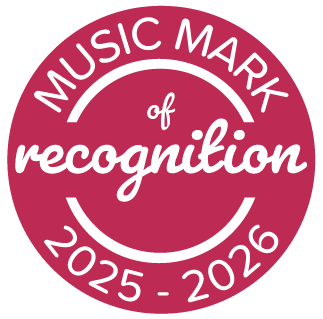- Home
- Curriculum
- English
- Reading Implementation (teaching)
Reading Implementation (teaching)
Learning to Read: phonics implementation EYFS/KS1
We follow a systematic approach to teaching phonics, using the Little Wandle Letters and Sounds Revised programme. For further details, see our Phonics and Early Reading tab.
Through this rigorous and consistent approach, each grapheme is introduced clearly and a focus is placed on blending to read and segmenting to spell. This provides children with the skills they need to begin to read words, captions and whole sentences as soon as possible. The teaching of phonics begins in Reception, and teaching continues daily to at least the point where children can read almost all words fluently. ‘Keep up’ sessions are used for pupils who need more support in consolidating their phonics knowledge.
In Reception and Year 1, children practise reading using decodable books that are closely matched to their developing phonic knowledge. Our children often reread the same text multiple times to develop their comprehension and fluency which includes their accuracy, automaticity (rapid recall of whole known words) and prosody (reading with expression). Alongside their independent reading of decodable books, our youngest pupils have daily story time and share books across the curriculum to ensure they develop a true love of reading.
Developing reading skills
As soon as children master the alphabetic code and can read fluently then, in Year 2, if and when pupils are ready, we begin to use the VIPERS (Vocabulary, Inference, Prediction, Explanation, Retrieval and Sequencing) model of teaching both in whole class and small group reading sessions. Children are also heard read by an adult each week, using the phonics books and a book from the school banded reading scheme.
Once children become fluent readers, a wider range of reading material is provided to enable high quality discussions about content, broaden their vocabulary and develop confidence. The VIPERS structure continues in KS2 through whole class reading lessons.
KS 2 pupils who need more support in developing their reading skills receive intervention on an individual or small group basis if they are not ready for whole class reading, or need support in addition to whole class reading.
Class reads are used as stimulus for writing, and are also shared in our daily story time sessions. These books are carefully chosen to ensure all children have a rich reading diet of a variety of authors and narratives.
Story time happens in every year group, to ensure the children are read to everyday and share, discuss and enjoy the endless possibilities of books.
Reading to Learn
As pupils develop their reading skills, it helps them to read to learn about other subjects in the curriculum. Opportunities for reading are a key part of our English and foundation subjects lessons and expectation of reading is a key skill in all curriculum areas.





